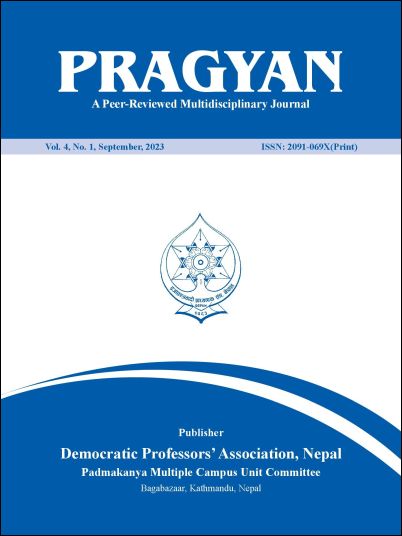Spiritual Humanism in Devkota’s Muna-Madan
DOI:
https://doi.org/10.3126/pprmj.v4i1.67616Keywords:
humanism, spirituality, mercy, compassion, pain and suffering, living hope, salvationAbstract
Devkota seeks spiritual humanism in order to restore moral, ethical and spiritual values in human beings. For him, the relationships between man and man, man and nature and man and God are vital. As a spiritual humanist, he focuses on acts of love and sacrifice for the good of humanity. According to him, this human world is to be guided by the universal spirit of God, the basis of spiritual humanism. He believes that God is present everywhere. Human beings have to realize it. Only spiritually motivated souls can sacrifice themselves for others. Devkota projects his ideas of Spiritual Humanism in Muna-Madan. He shows his tremendous reverence towards gods and goddesses because the marginalized and downtrodden people receive solace and living hope from God. Devkota believes that spiritually motivated people are compassionate and merciful towards fellow beings. Muna and her mother in-law unconditionally love Almighty God for their ultimate salvation from worldly sufferings. The Bhote (a pejorative term for a Tibetan man) shows an excellent example of humanity by helping an unknown person Madan. This paper highlights Devkota’s philosophy of spiritual humanism in Muna Madan.




